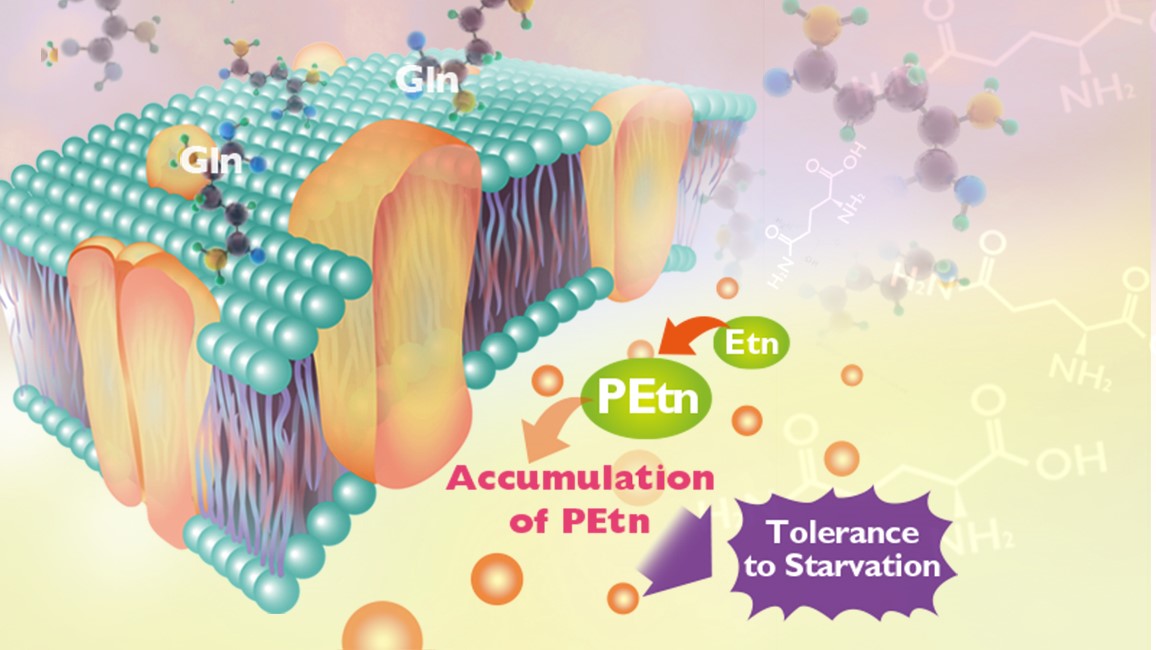- HOME
- NEWS
- RCAST Report
- No Glutamine? No Problem! Study Shows How a Chemical Lets Starving Cancer Thrive
No Glutamine? No Problem! Study Shows How a Chemical Lets Starving Cancer Thrive
- Research News
October 2, 2019

Researchers at the University of Tokyo uncover a new cellular pathway that lets cancers grow when nutrients are scarce, potentially pointing the way to new treatment methods
All cells needs chemical nutrients to survive and grow. Tumors often grow so fast that they cannot get enough nutrients from their surrounding host tissue, and as a result many cancer cells learn to survive in nutrient-starved environments. Researchers at the University of Tokyo and their collaborators has reported a new molecular pathway in cancer cells that allows them to grow when nutrients are scarce, suggesting a potential approach to cancer treatment.
“As tumors grow, their cells become isolated from the body’s vascular tissue that supplies essential nutrients,” explains Tsuyoshi Osawa, the lead investigator of the study. “Aggressive forms of cancer can adapt to these conditions and often show a great deal of tolerance to severe nutrient deficiencies, particularly the amino acid glutamine. If we can better understand how cancer cells are able to proliferate under these harsh microenvironments, we can potentially identify new therapeutic targets for certain types of cancer.”
To accomplish this, the research team looked at the “metabolome” of cancer cells. In essence, they mapped all of the chemicals involved in the cells’ metabolism, and then searched for chemicals that appeared when the cells were starved of nutrients. One chemical in particular—phosphoethanolamine (PEtn)—stood out above the rest.
“We cultured mouse tumor tissues in glutamine-poor conditions to see which metabolic products were elevated,” says corresponding author Emeritus Professor Tatsuhiko Kodama. “While we saw upticks in several metabolites, PEtn showed by far the most accumulation in these tissues. Moreover, we found that adding PEtn to cancer cells in vitro helped the cells utilize sugar and produce more energy, which allowed them to continue growing even when glutamine was unavailable.”
How might these findings translate into possible cancer treatments? As it turns out, conventional chemotherapy is not especially effective in tumors that have learned to grow with limited nutrients. The researchers hypothesize that by looking at genes that control how much PEtn gets made in cancer cells, it may be possible to develop therapies that specifically target these hardy tumors.
“Our findings suggest that PEtn may play a critical role in cancer growth under glutamine-starved conditions,” Osawa concludes. “We believe that key genes involved in PEtn metabolism may offer potential therapeutic targets against these adaptive tumors. Our hope is that a greater understanding of the molecular pathways underpinning PEtn may someday open new avenues of treatment for patients with cancer.”
###
The article, “Phosphoethanolamine Accumulation Protects Cancer Cells under Glutamine Starvation through Downregulation of PCYT2” was published in Cell Reports at DOI: 10.1016/j.celrep.2019.08.087.
https://www.cell.com/cell-reports/fulltext/S2211-1247(19)31149-0
Research Contact
Tsuyoshi OSAWA, Project Associate ProfessorIntegrative Nutriomics and Oncology
Tags

